

Mirage at Apple Park
source link: https://arun.is/blog/apple-mirage/?ref=sidebar
Go to the source link to view the article. You can view the picture content, updated content and better typesetting reading experience. If the link is broken, please click the button below to view the snapshot at that time.

Though it remains the most secretive of the Bay Area’s technology companies, Apple has steadily increased its publicly-accessible facilities. For years, public access was limited to its company store at the Infinite Loop campus.
Next came the Apple Park Visitor Center — a combination Apple Store, visitor center, and cafe. It has become one of my favorite places to meet up for coffee or get work done.
This summer, Mirage, an art installation occupying the olive grove north of the visitor center, was unveiled. I decided to visit as a midday break. From the visitor center, the piece appears as a curved wall made of tinted glass. As we approach closer, it becomes clear that the wall is actually four hundred glass cylinders sprouting from the ground with no visible support structure.
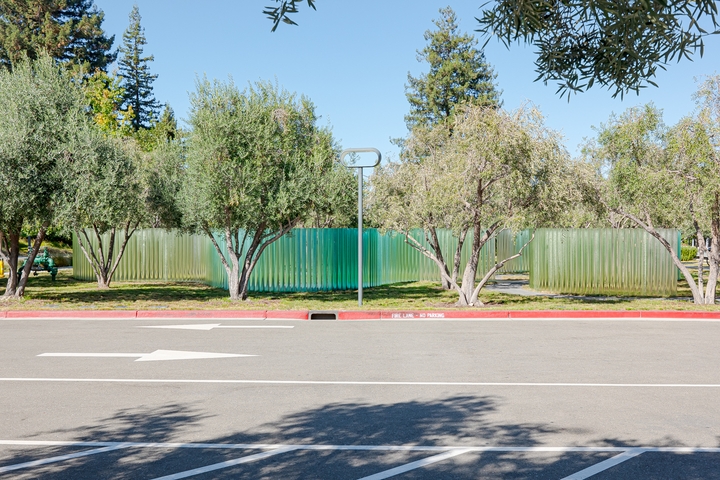
Leica CL · 23mm · f/4.5 · 1/640 · ISO 100
Each cylinder was made from sand collected from a different desert across the earth. A sign at one of the entrances provides a guide to the sources. There are a variety of deserts represented, from mountainous deserts, to volcanic deserts, and even fossilized deserts from millions of years ago.
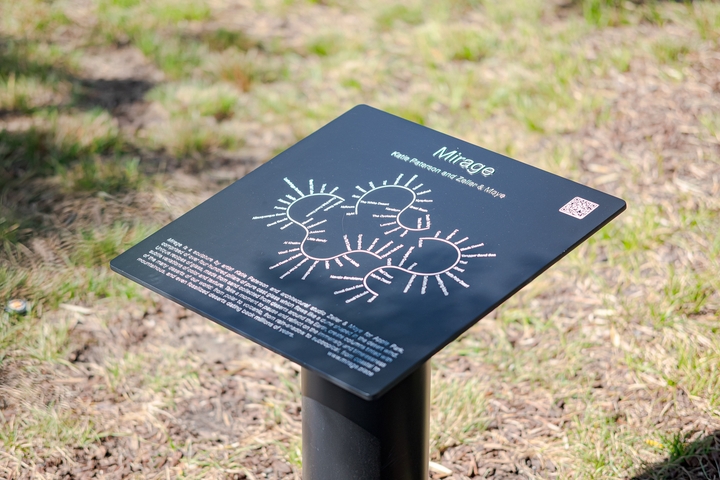
Leica CL · 56mm · f/1.4 · 1/4000 · ISO 100
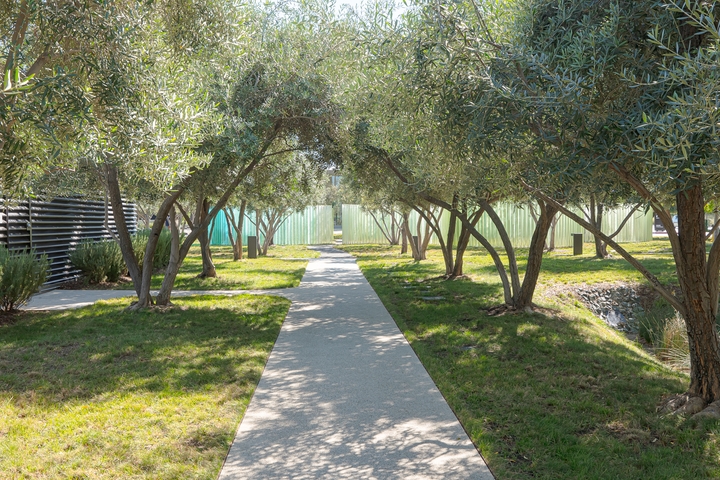
Leica CL · 23mm · f/4.5 · 1/200 · ISO 100
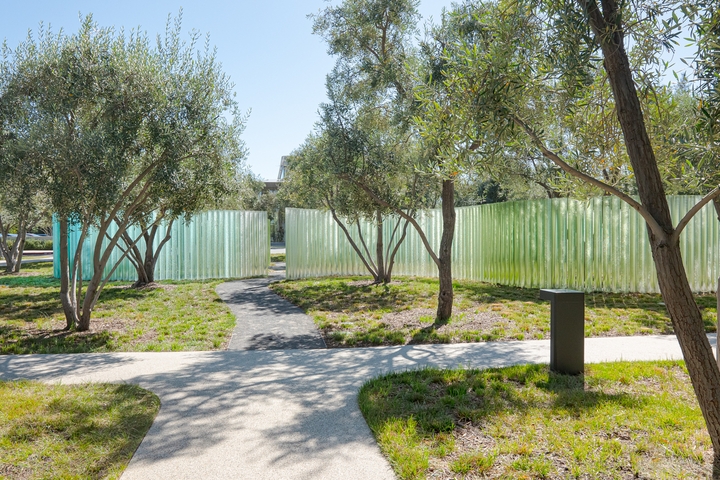
Leica CL · 16mm · f/2.7 · 1/3200 · ISO 400
The columns, though static, seem to undulate and move through their effect on the light. Some are iridescent, while others are nearly clear. Some cast shadows, while others cast a tinted glow around them. At night, they are each lit from below. Each column, though smooth from the distance, has a unique texture at the surface and bubbles inside. Visitors are encouraged to touch them as they walk the winding path around the piece.
The columns form three curving lines around olive trees. Walking paths enter in three places and follow the insides of the glass.
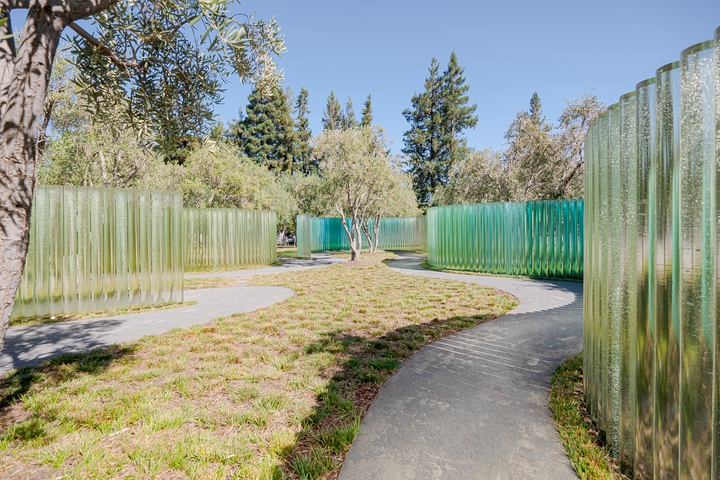
Leica CL · 11mm · f/2.7 · 1/3200 · ISO 400
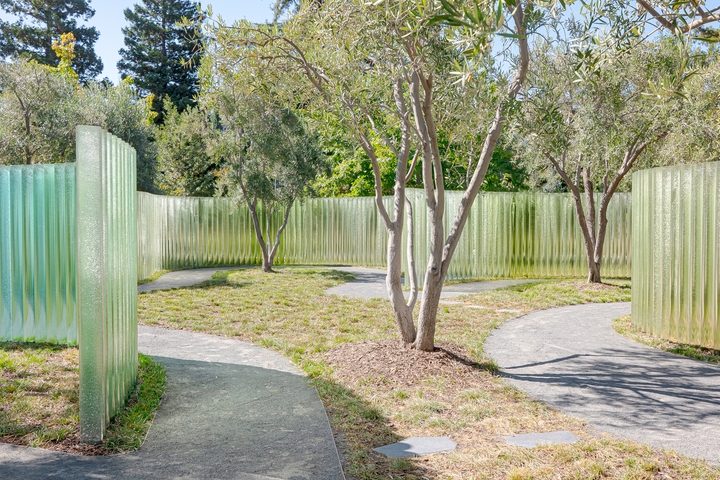
Leica CL · 23mm · f/4.5 · 1/400 · ISO 100
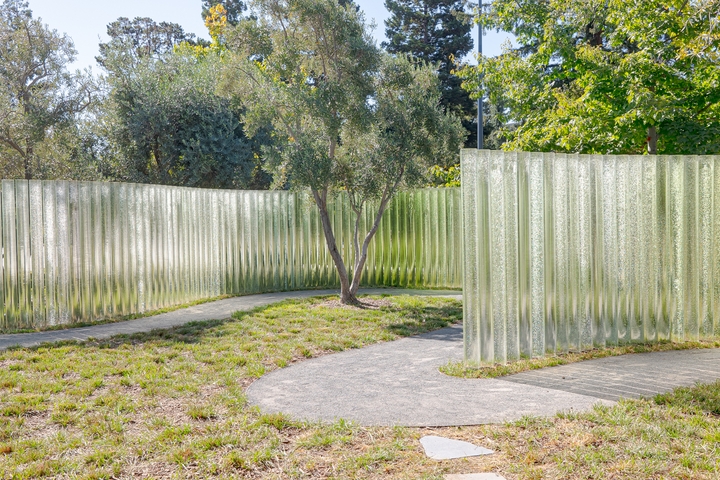
Leica CL · 23mm · f/4.5 · 1/400 · ISO 100
As I walked through the piece over and over, I pondered the significance of the piece’s origin - sand. In its ubiquity, it may be one of the world’s most important materials. It forms grand landscapes in the Sahara and Gobi. Yet, it’s also the principle ingredient in minuscule microchips. Of course, it’s also used in creating glass.
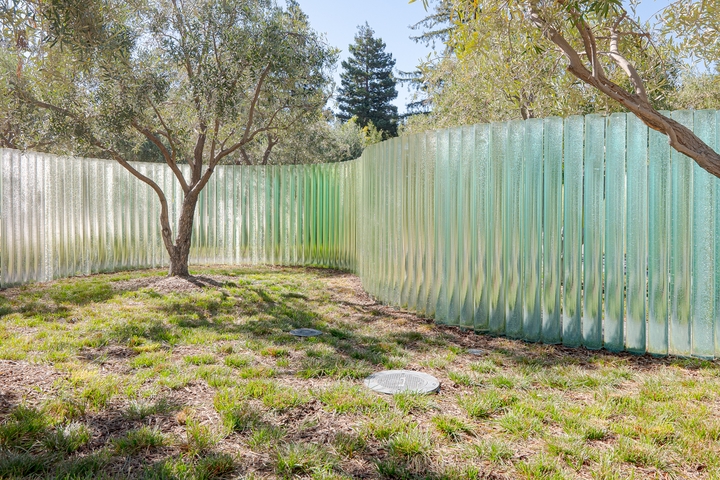
Leica CL · 18mm · f/2.8 · 1/500 · ISO 100
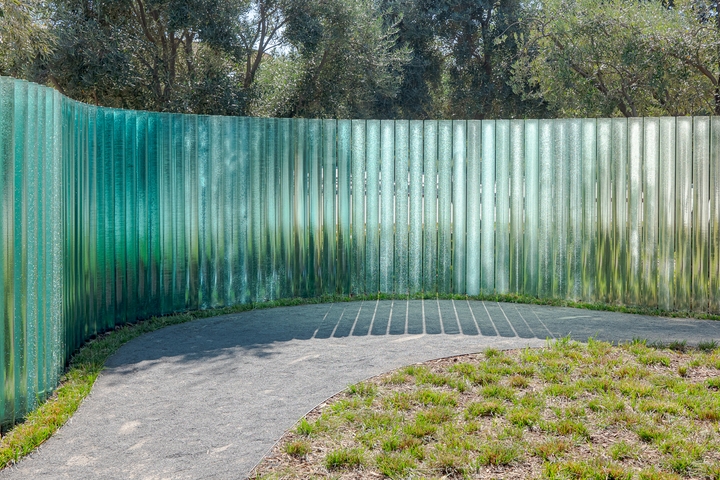
Leica CL · 23mm · f/4.5 · 1/500 · ISO 100
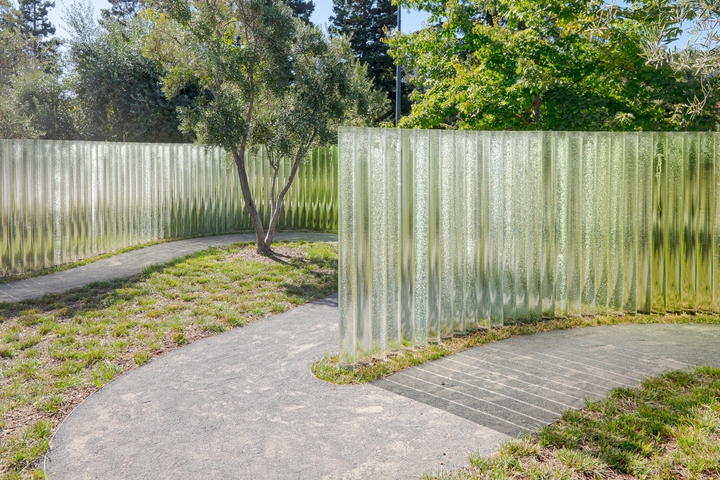
Leica CL · 15mm · f/2.7 · 1/800 · ISO 100
Glass is deeply important to Apple’s story. The company, alongside its external architectural and structural engineering partners, has pioneered new methods of utilizing Glass as a structural element. A prime example is the Steve Jobs Theater just a few minutes walk from Mirage. Its immense carbon fiber roof is supported only by a cylindrical arrangement of glass panes.
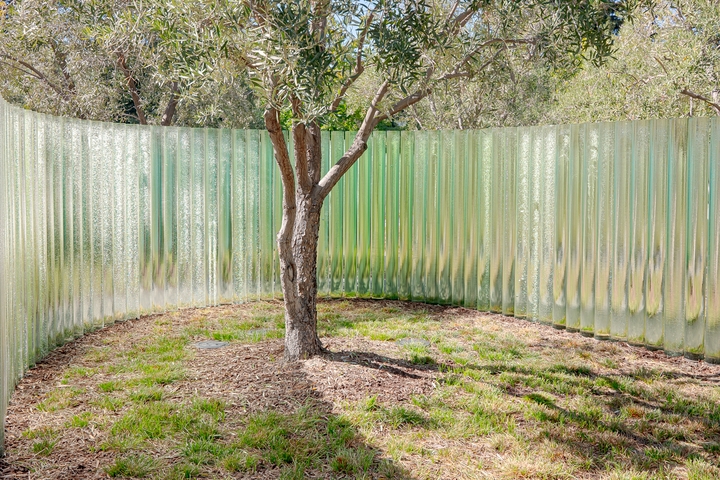
Leica CL · 22mm · f/4.5 · 1/400 · ISO 100
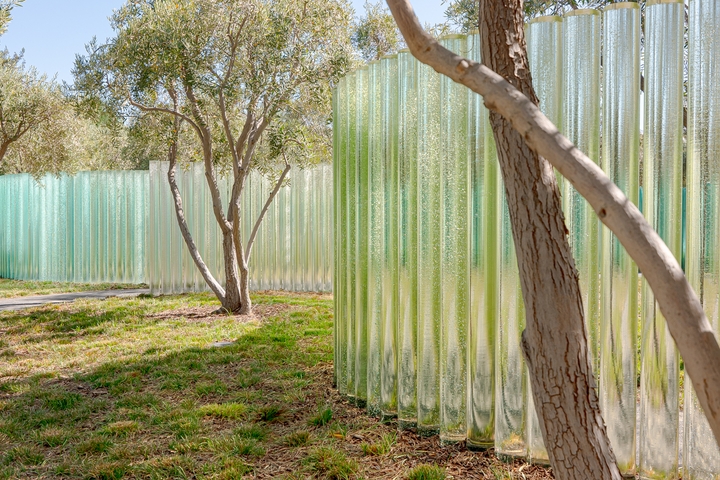
Leica CL · 23mm · f/4.5 · 1/400 · ISO 100
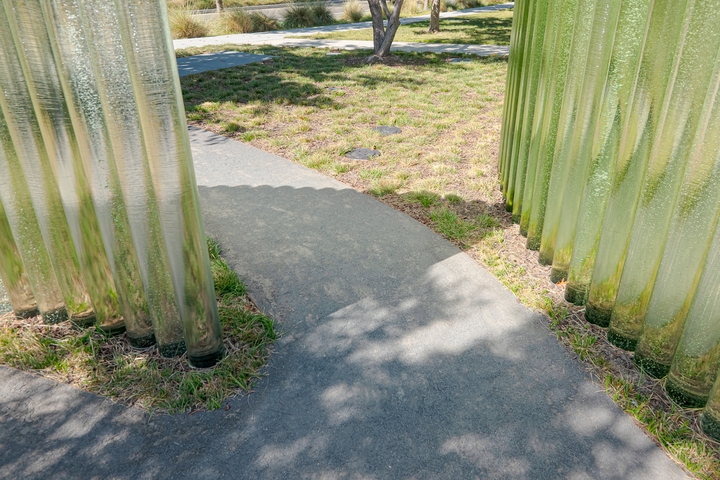
Leica CL · 14mm · f/2.6 · 1/640 · ISO 100
Apple similarly innovates in how it uses glass in its products, like with its Ceramic Shield smartphone glass and the Nano-texture glass covering its desktop displays.
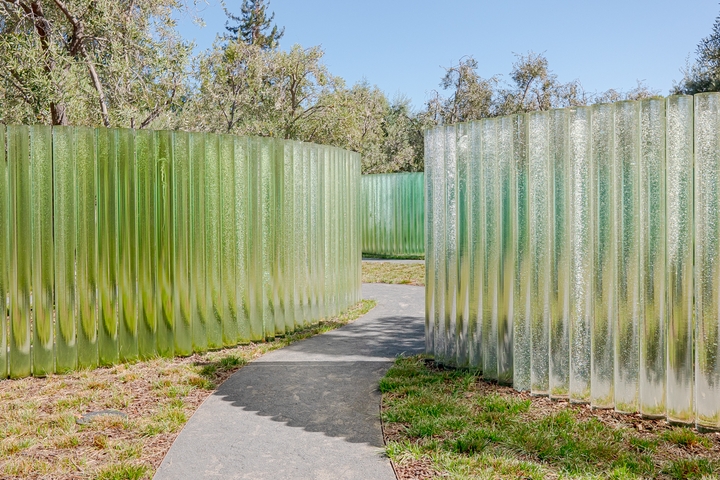
Leica CL · 23mm · f/4.5 · 1/3200 · ISO 400
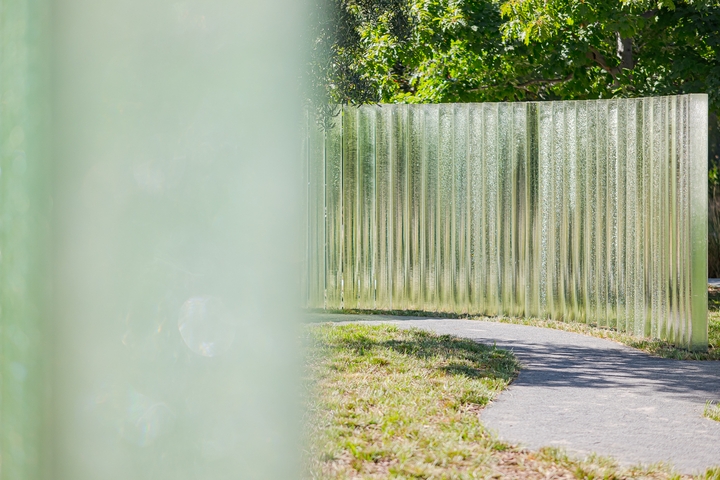
Leica CL · 56mm · f/1.4 · 1/5000 · ISO 100
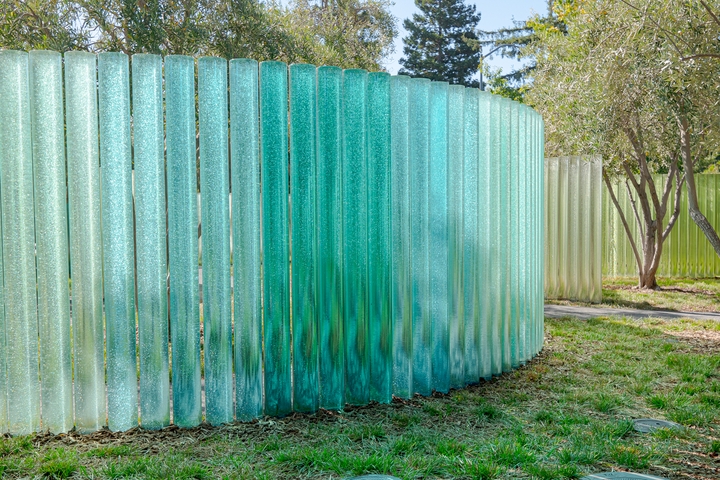
Leica CL · 23mm · f/4.5 · 1/400 · ISO 100
The glass at Mirage, like with the aforementioned uses, was conceived through a sophisticated process. Hundreds of people were involved globally — from collecting the sand, to studying its properties, to then casting the columns with unique recipes for each sand type. These are just a few of the multitude of steps required for creating this piece.
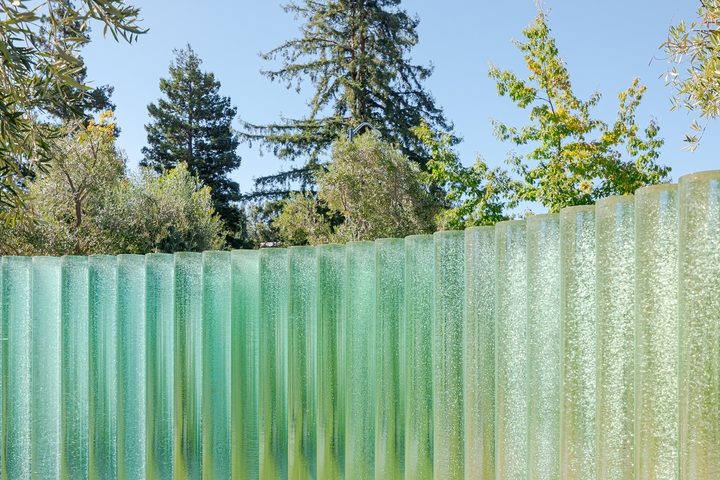
Leica CL · 23mm · f/4.5 · 1/500 · ISO 100
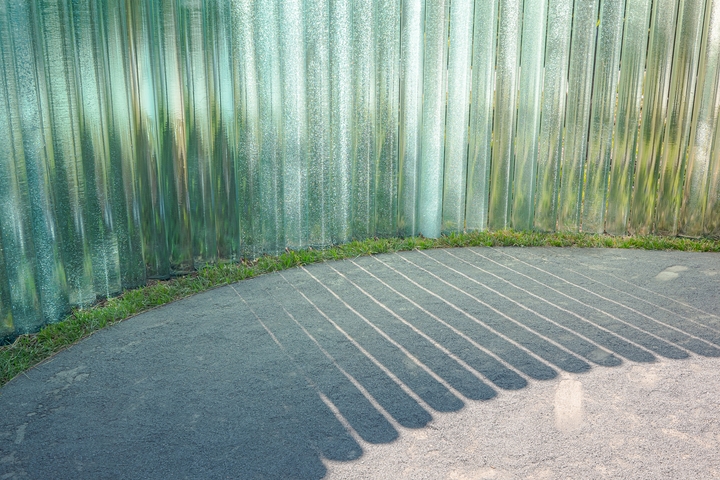
Leica CL · 23mm · f/4.5 · 1/320 · ISO 100
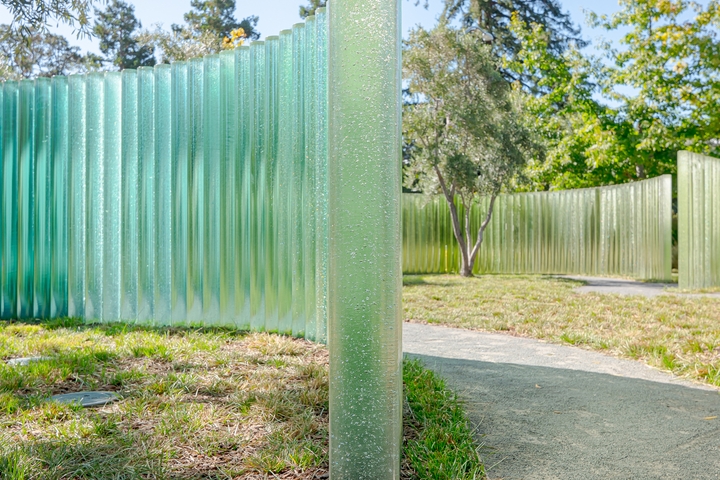
Leica CL · 23mm · f/4.5 · 1/320 · ISO 100
The resulting columns remind me of silicon boules, which are a precursor step in the production of microchips. They are also reminiscent of architectural columns, which have been used for millennia.
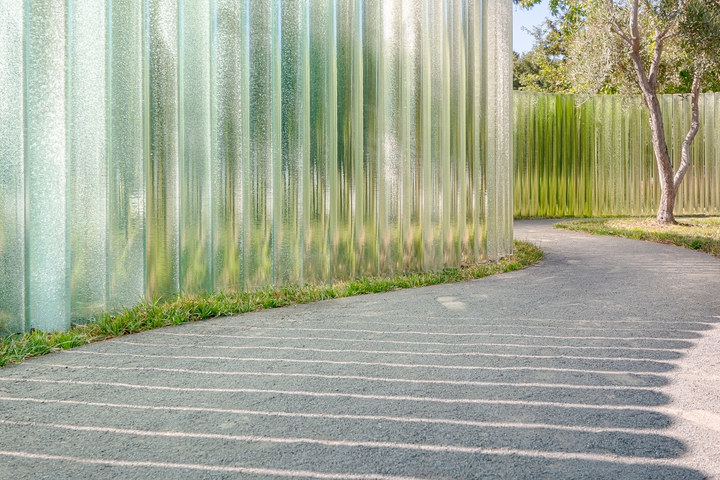
Leica CL · 23mm · f/4.5 · 1/320 · ISO 100
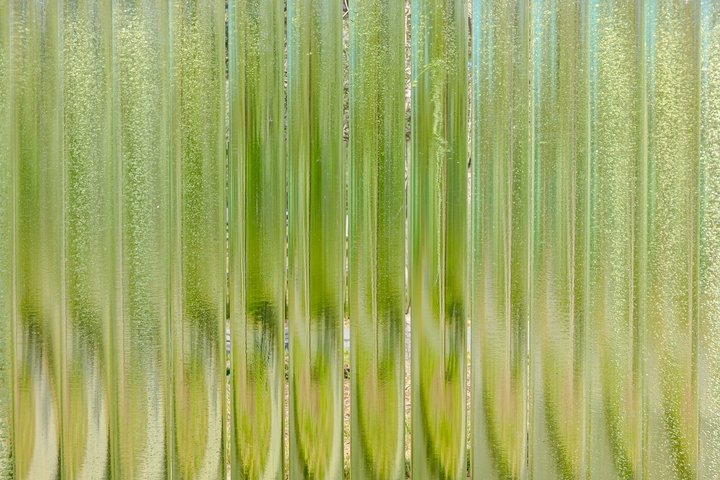
Leica CL · 23mm · f/4.5 · 1/1600 · ISO 400
As it’s clear by now, Mirage sits at the intersection of many fields — science, art, technology.
The work was commissioned by Apple and executed by artist Katie Paterson and architectural studio Zeller & Moye. Katie regularly collaborates with scientists and researches around the world to consider humanity’s place in our changing planet. Zeller & Moye work to engage with the public about social and sustainability issues.
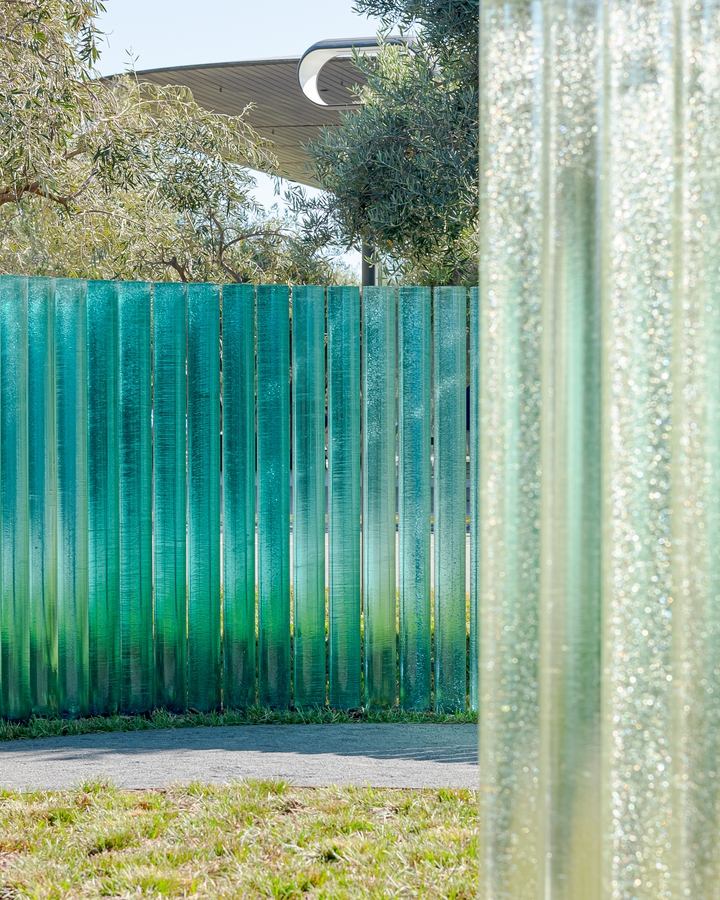
Leica CL · 56mm · f/3.0 · 1/500 · ISO 100
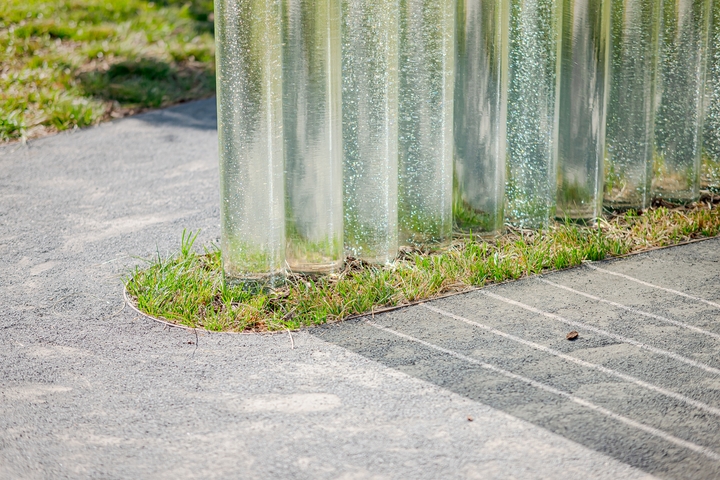
Leica CL · 56mm · f/1.4 · 1/5000 · ISO 100
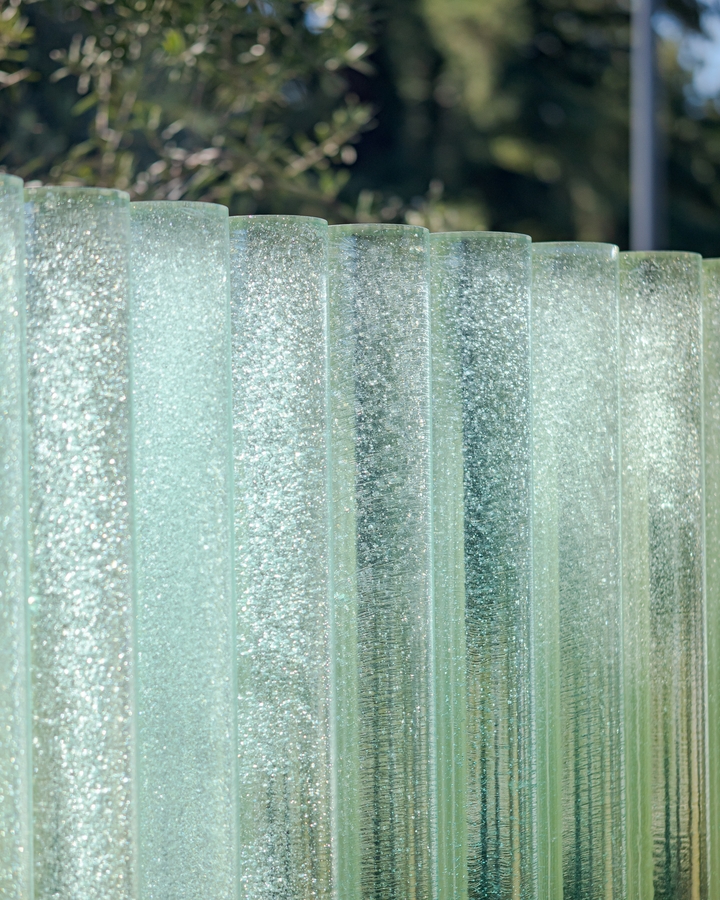
Leica CL · 56mm · f/1.4 · 1/8000 · ISO 100
I’d consider the mission of Mirage’s creators a success. They have sparked so many questions about our place on this planet. The longer I spent walking and photographing, the more I considered the immense beauty that can be found in something as mundane as sand or glass.
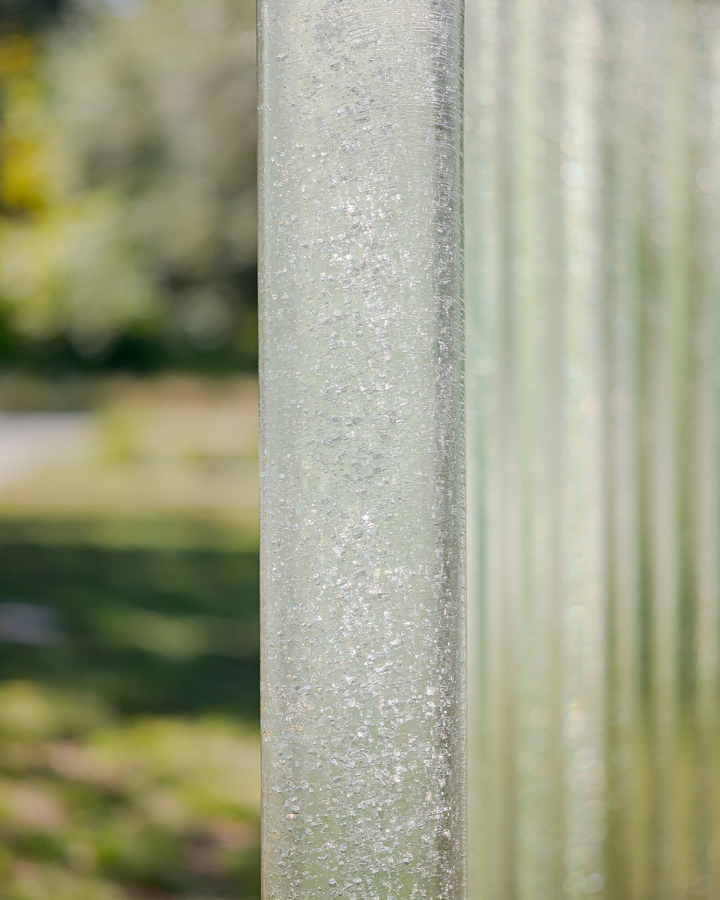
Leica CL · 56mm · f/1.4 · 1/8000 · ISO 100
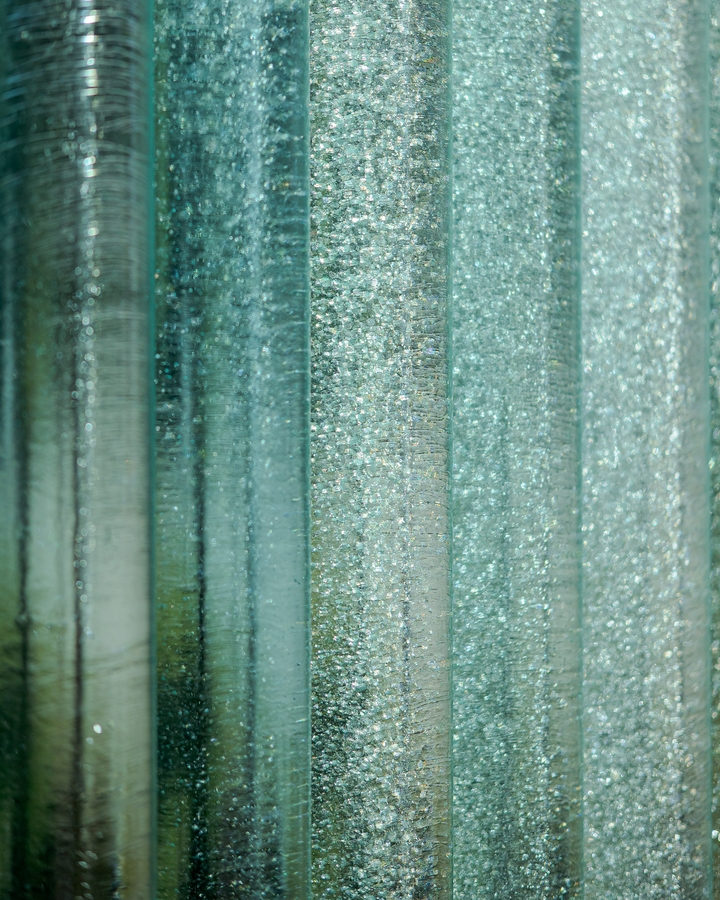
Leica CL · 56mm · f/1.4 · 1/12000 · ISO 100
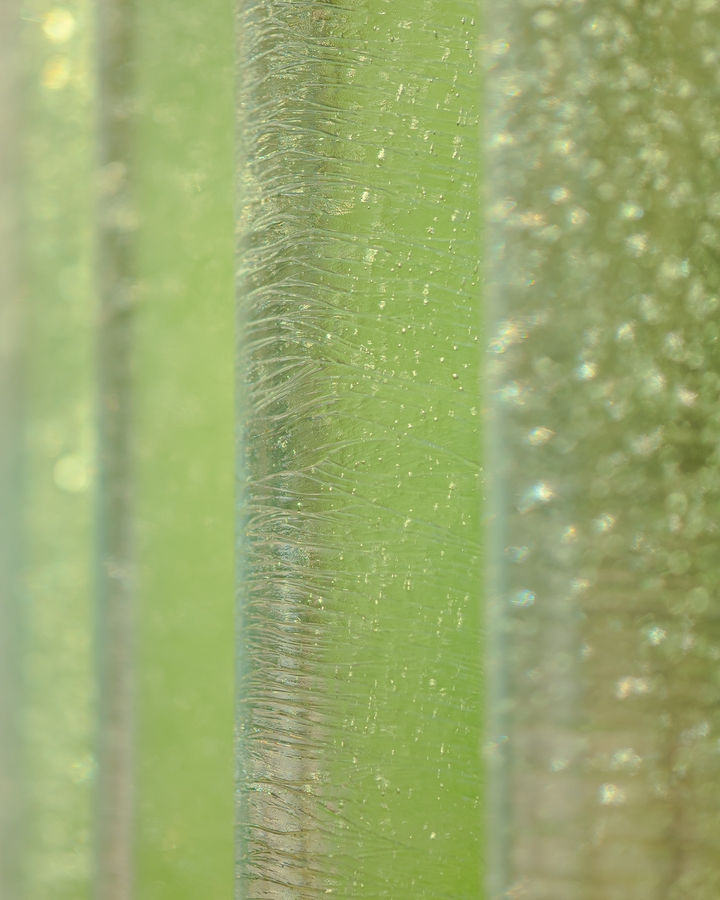
Leica CL · 56mm · f/1.4 · 1/5000 · ISO 100
I’ll be back soon at night to see what else this work of art triggers in me.
Thanks to Q for reading drafts of this.
Recommend
About Joyk
Aggregate valuable and interesting links.
Joyk means Joy of geeK